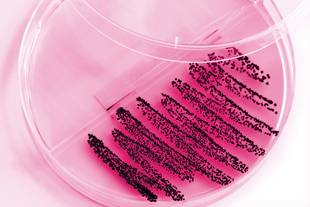What tests can I do as part of a cervical cancer prevention program?
Cervical cancer affects over half a million women around the world at any given time. In countries where screening programs exist, at least four out of every five deaths due to cervical cancer occur in women who have not had a Pap test in the past 10 years, or who have been inadequately screened. Currently the best way to prevent death from cervical cancer is regular screening with a Pap test (or cervical smear).
This should be undertaken at least every 2 or 3 years, or more often if previous tests have been abnormal or there are particular risks (e.g. HPV infection). Genital infection with the human papillomavirus (HPV) is responsible for most cervical cancers.
HPV is a very common virus and four out of five sexually active men and women become infected with it at some point in their lives. Vaccination is effective in preventing infection from cancer-causing strains if performed before we first meet the virus during sex (e.g. vaccination of girls aged 12 to 13).
Actions to prevent Cervical Cancer
- Get a regular PAP test; every 2-3 years from your twenties, or more often if previous tests have been abnormal or there are particular risks (e.g. HPV infection)
- Give up smoking
- Delay – try to put off your first cigarette of the day as long as possible so that you gradually reduce your smoking hours
- Distract – do something to take your mind off the cravings, have a glass of water, go for a walk, have a piece of fruit or read a book
- Deep breaths – take 3 deep breaths and see how you feel before you automatically reach for a cigarette
- Eat a diet naturally high in antioxidants, especially lycopenes, CoQ10 and carotenoids
- Include a tablespoon of tomato paste in your cooking each day as is a great source of lycopene
- Have at least 4 rainbow foods on your plate each main meal. Choose in particular from red, orange and green foods such as capsicum, carrot, pumpkin, sweet potato and green leafies such as spinach, broccoli and rocket
- Protect against exposure to HPV and Chlamydia; use a condom and practice safe sex in general
Last Reviewed 02/Mar/2014
Dr Merlin Thomas
Latest posts by Dr Merlin Thomas (see all)
- How to increase DHEA levels - 28/09/17
- Testosterone supplement benefits & risks - 11/07/17
- Health effects of tea & coffee - 10/07/17







